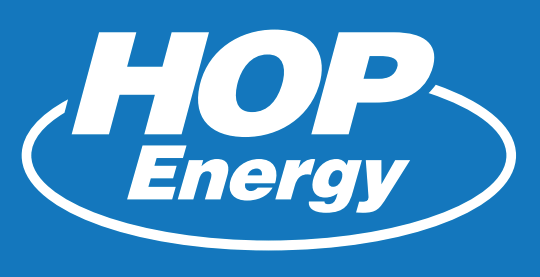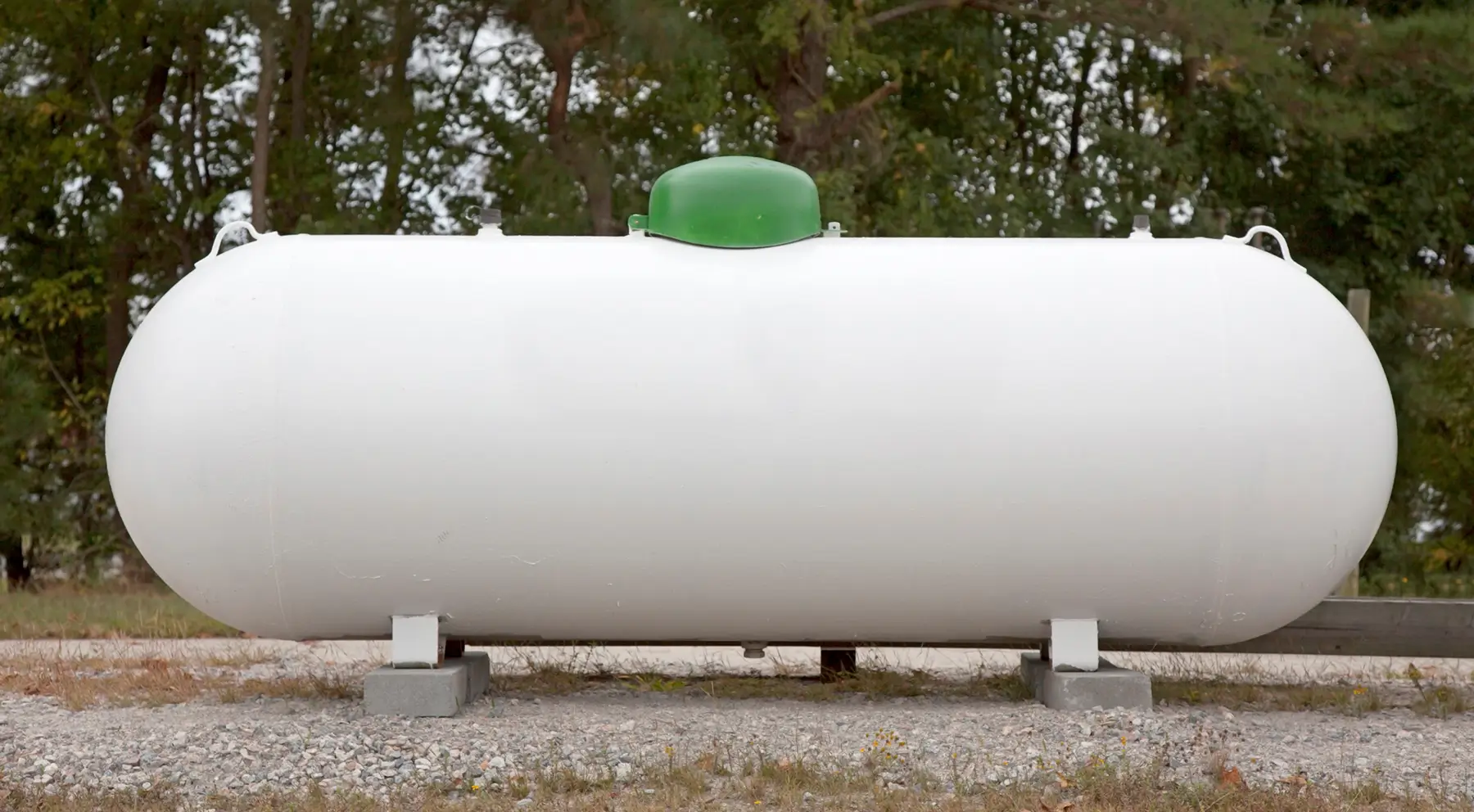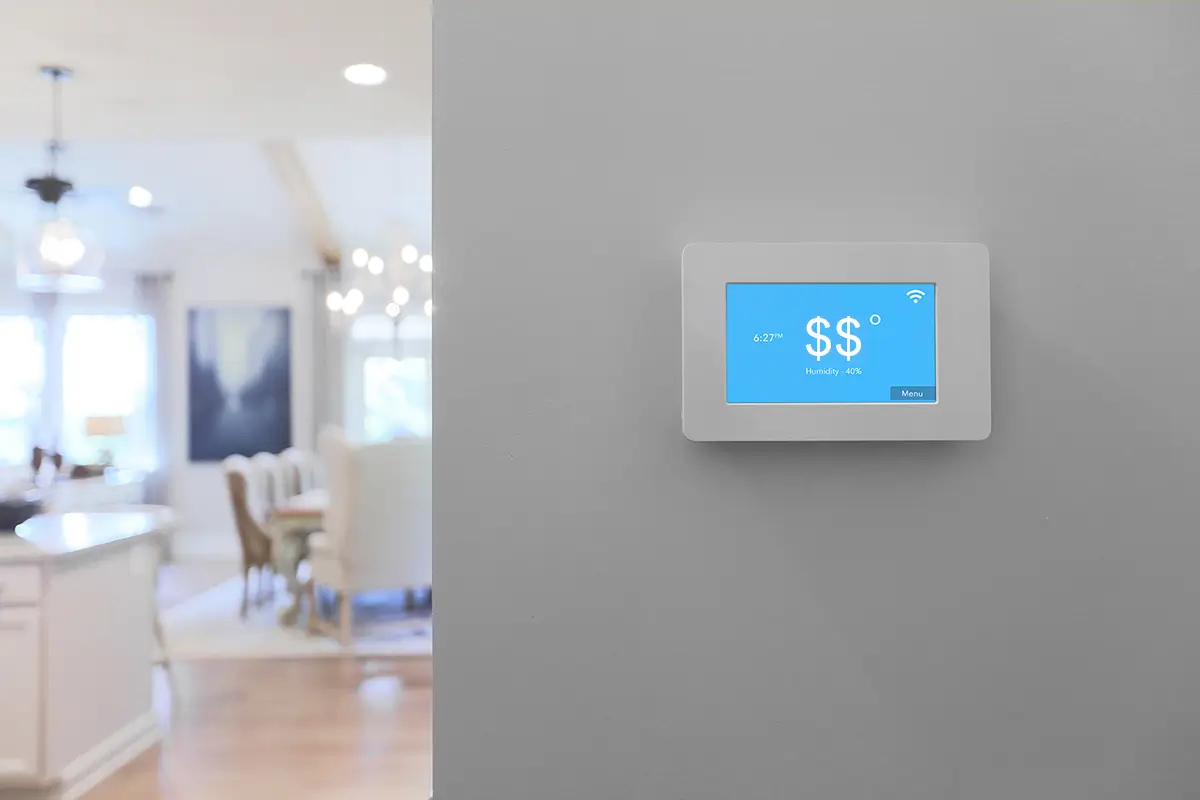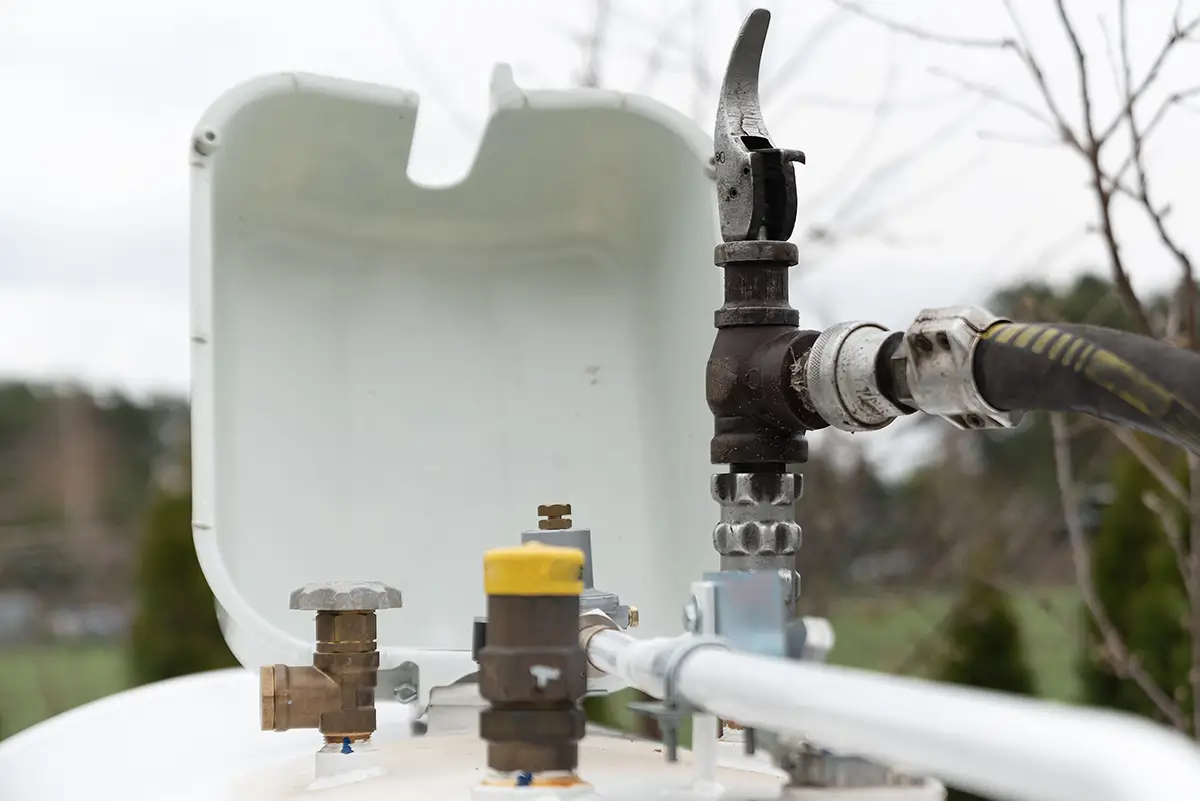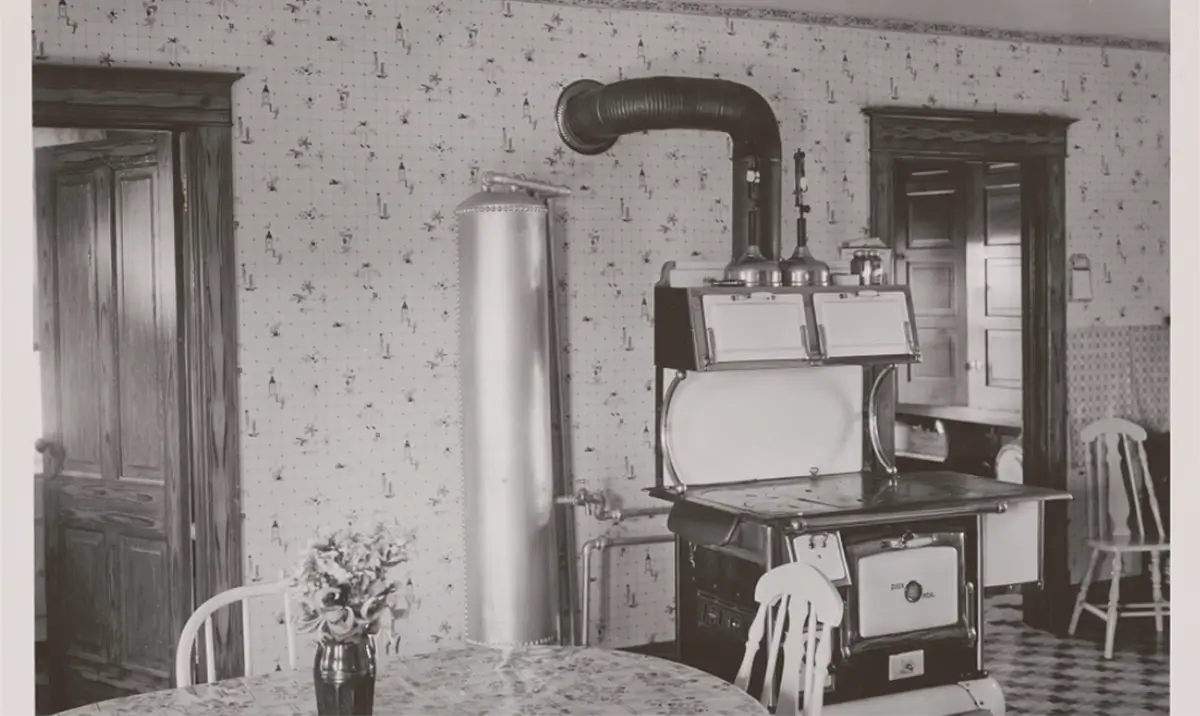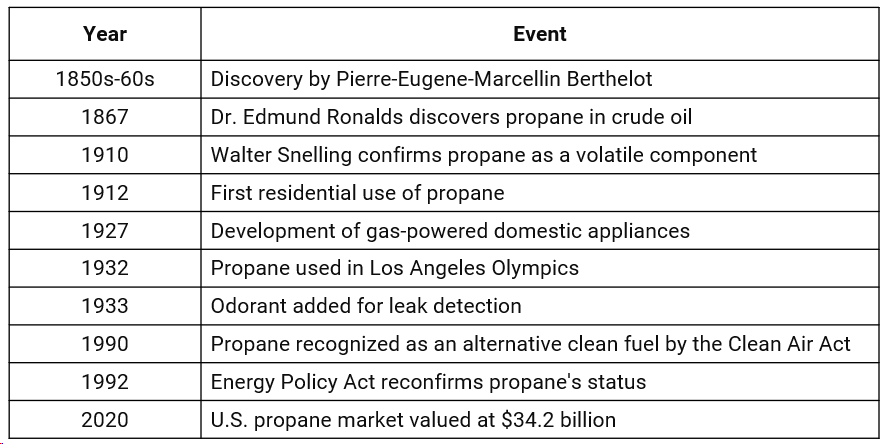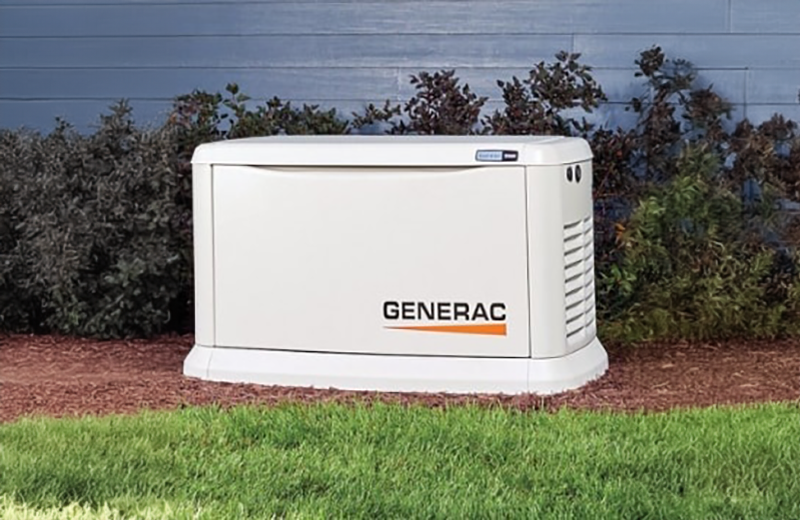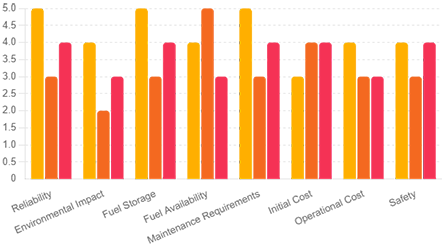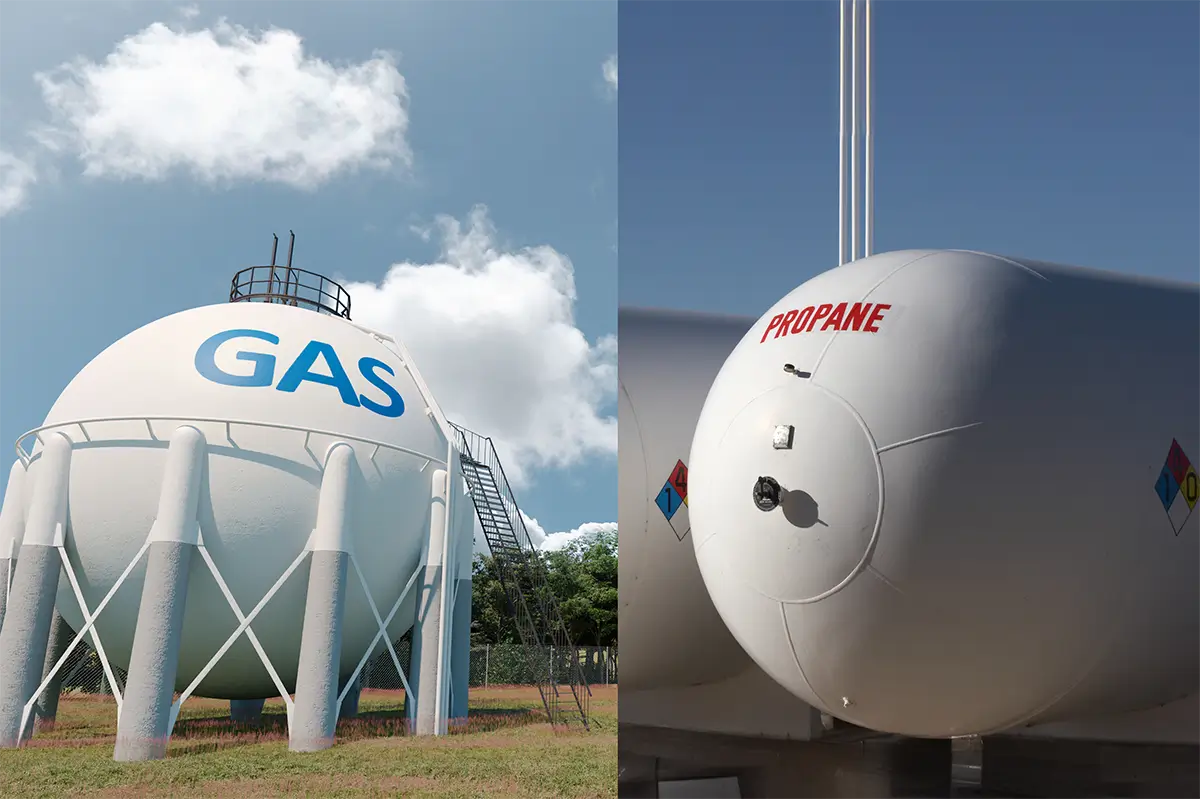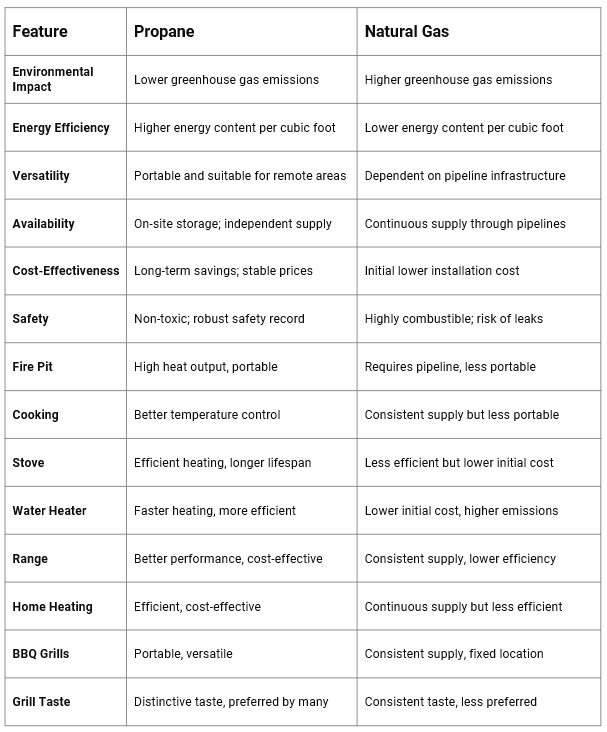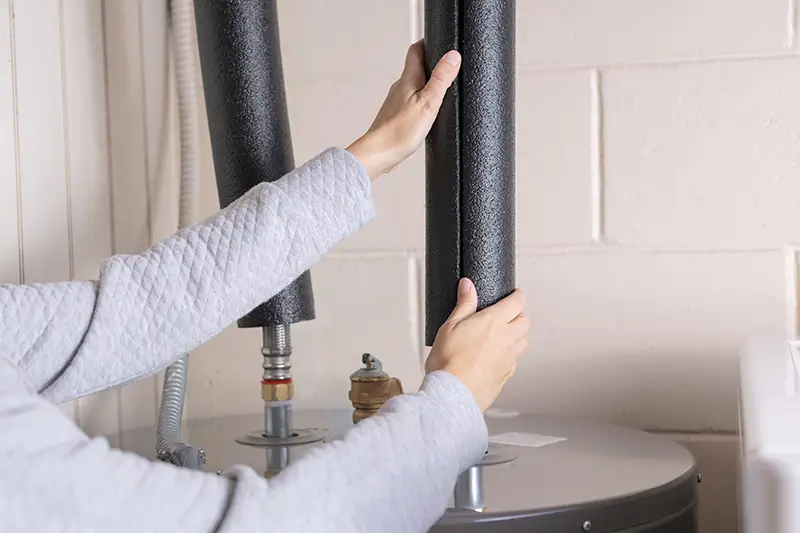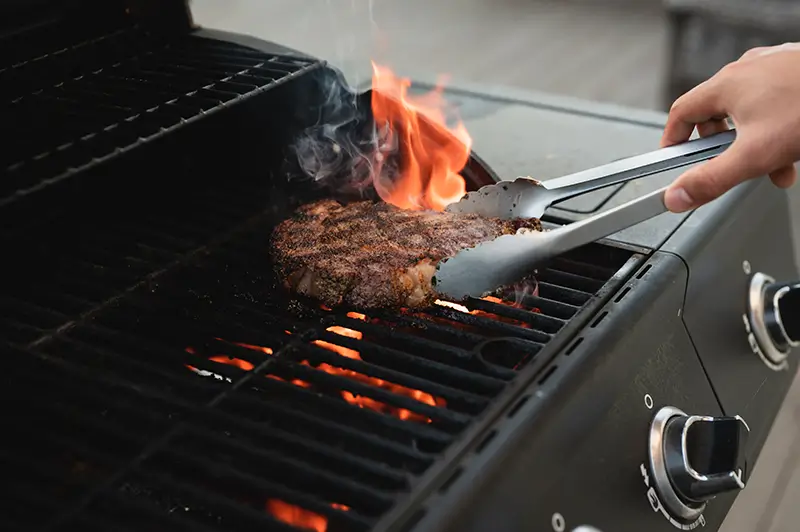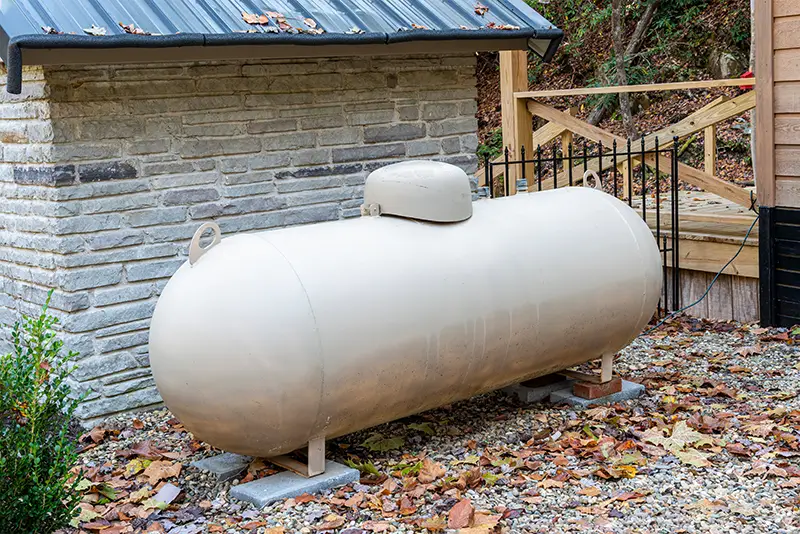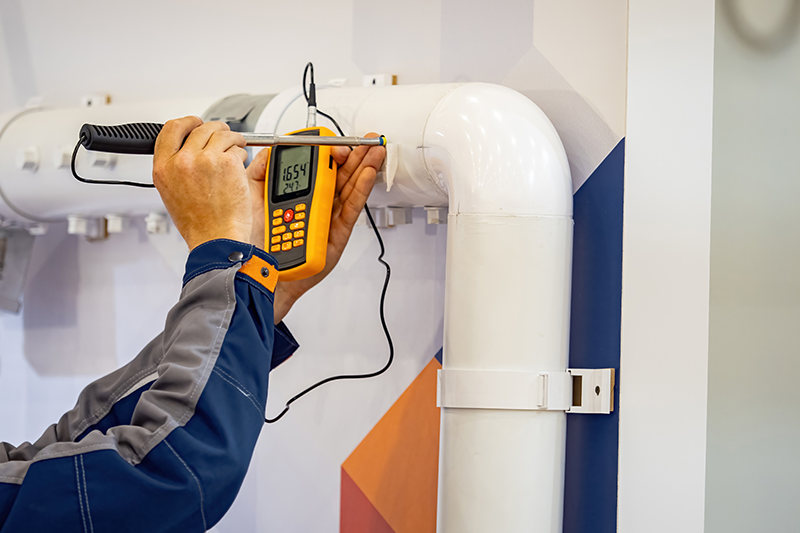Propane is a versatile and efficient energy source for residential and commercial purposes, powering appliances from heating systems to stoves and grills. When it comes to managing propane supply, consumers face a choice between leasing and owning their propane tanks—a decision that impacts both the cost and management of their energy supply. This article explores these options, emphasizing the operational and financial implications, to help users make an informed decision tailored to their specific needs. Understanding the benefits and responsibilities associated with each option ensures that users can maintain a safe and cost-effective propane system.
Table of Contents
Understanding Propane Tanks
Propane tanks, integral to the storage and supply of propane, come in two primary types: ASME tanks and DOT cylinders, each suited for different uses and settings.
Types of Propane Containers
- ASME Tanks: These tanks are installed horizontally and used in residential settings to fuel homes. They range in size from 120 to over 1,000 gallons. A data plate identifies ASME tanks under the dome, which includes a “clover leaf” marking indicating their compliance with specific manufacturing and safety standards.
- DOT Cylinders: Unlike ASME tanks, DOT cylinders are generally smaller, used in both residential and commercial settings, and are installed vertically. They are known as stationary service cylinders and are distinguished by stamped markings on their collars.
Propane Tank Sizes
- Medium Tank (500 gallons): A versatile option suitable for average residential needs, including heating, hot water, and cooking. It can be installed either above ground or underground, depending on the property’s aesthetics and space requirements.
- Large Tank (1,000 gallons): Designed for extensive use, such as in large homes or for commercial purposes where multiple appliances are powered by propane. Its large capacity reduces the frequency of refills and can also support whole-home heating systems efficiently.
Tank Type
Installation Type
Typical Capacity
Aesthetic Impact
Installation Cost
Maintenance Accessibility
Above-Ground Tank
Underground
120 to 1,000+ gallons
Visible, less aesthetic
Lower
Easier, more accessible
Underground Tank
$150 – $300 per year
500 to 1,000+ gallons
Minimal visual impact
Higher
More challenging
Detailed Comparison:
Above-Ground Tank:
- Installation: Easier and faster to install with lower initial costs.
- Capacity: Ranges widely from small (120 gallons) to large capacities (1,000+ gallons), making it versatile for different needs.
- Aesthetic Impact: More visible and may not blend well with landscaping or property aesthetics.
- Maintenance Accessibility: Easier to inspect and maintain due to its visibility, allowing for quicker detection and resolution of issues.
Underground Tank:
- Installation: More complex and requires excavation, leading to higher initial costs.
- Capacity: Typically starts at larger sizes (500 gallons), suited for users with significant propane needs.
- Aesthetic Impact: Virtually invisible once installed, preserving the natural aesthetics of the property.
- Maintenance Accessibility: Inspections and repairs can be more cumbersome and expensive as the tank is not readily accessible.
Installation and Location Requirements
- Above-ground tanks: These tanks must be placed at least 10 feet from buildings or property lines to meet safety regulations. This distance can vary based on local codes and the tank’s capacity.
- Underground Tanks: Preferred for aesthetic and space-saving reasons, underground tanks have specific depth and protective requirements to shield against physical damage and corrosion. They must also be installed away from potential vehicular traffic to prevent accidents and ensure integrity.
The placement of propane tanks is regulated to ensure safety and accessibility. Whether above or underground, these installations require adherence to national and local codes, and only qualified professionals should perform the installation and maintenance.
Pros and Cons of Leasing vs. Owning
Deciding between leasing and owning a propane tank involves considering immediate and long-term financial and operational impacts. Each option offers distinct advantages and drawbacks.
Advantages of Leasing a Propane Tank
- Lower Initial Cost: Leasing a tank requires less upfront investment, making it an attractive option for those who prefer to avoid the substantial purchase cost of a new tank.
- Maintenance and Repairs: Maintenance responsibilities fall on the leasing company, not the user, reducing the burden of regular upkeep and unexpected repairs.
- Flexibility: Leasing allows for easier upgrades or replacements as needs change or technology advances without the financial loss associated with disposing of owned equipment.
Disadvantages of Leasing a Propane Tank
- Higher Long-term Costs: Over time, leasing fees can accumulate, potentially surpassing the one-time cost of purchasing a tank.
- Limited Control: Leasers may face restrictions on the type of propane they can use or from whom they can buy it, often tied to the leasing company’s terms.
Advantages of Owning a Propane Tank
- Cost-Effectiveness Over Time: Although the initial expense is high, owning a tank eliminates ongoing leasing fees, making it more cost-effective in the long run.
- Complete Control: Owners have full autonomy over their tank, including the choice of propane supplier and the timing of refills, which can lead to better pricing and service options.
Disadvantages of Owning a Propane Tank
- Upfront Investment: The purchase price of a propane tank can be high, requiring a significant initial financial outlay.
- Maintenance Responsibility: Owners are solely responsible for all maintenance, repairs, and compliance with safety regulations, which can be costly and time-consuming.
Weighing these pros and cons is crucial for consumers to choose the best option that aligns with their financial capabilities and personal preferences for managing home or business propane needs.
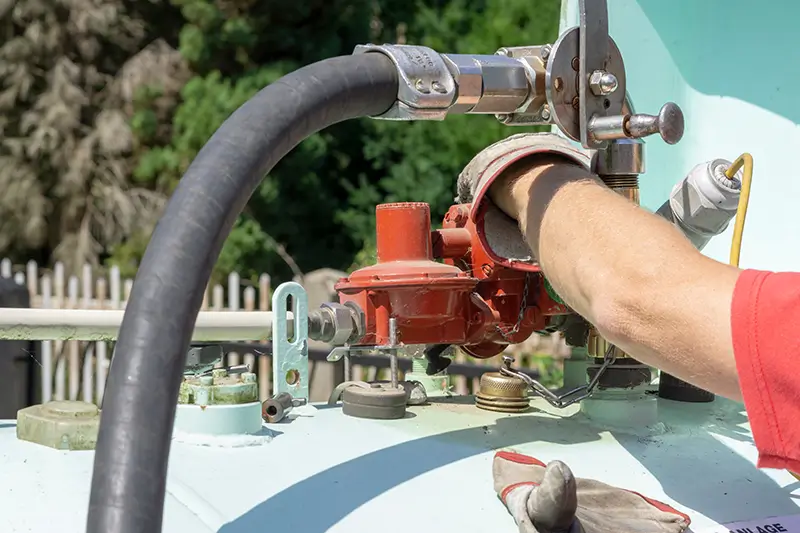
Propane Tank Maintenance Responsibilities
Proper maintenance is crucial for the safety and efficiency of propane tanks, whether leased or owned. Understanding these responsibilities helps prevent potential hazards and ensures the tank’s longevity.
General Maintenance Requirements
- Regular Inspections: Propane tanks should be inspected regularly by qualified service technicians. These inspections can identify issues before they become serious problems.
- Servicing and Repairs: Any servicing, modifications, or repairs must be performed by professionals certified to handle propane systems. This ensures that all work meets safety standards and regulations.
Safety Measures and Emergency Preparedness
- Compliance with Regulations: Tank owners must ensure their tanks comply with local, state, and national codes, which may include specific measures for installation, maintenance, and emergency procedures.
- Emergency Procedures: Owners should know what to do in case of a propane leak or other emergencies. This includes knowing how to shut off the propane supply and when to evacuate the area.
Specific Maintenance Tasks
- Painting and Corrosion Prevention: Propane tanks need to be painted with reflective colors that can withstand environmental conditions to prevent rust and corrosion. It’s crucial not to paint over safety labels, valves, or the data plate, as these are necessary for safe operation and refilling.
- Anchoring: Tanks must be securely anchored in areas prone to extreme weather, such as hurricanes or flooding, to prevent displacement. Safety regulations dictate specific anchoring requirements for both above-ground and underground tanks.
Ensuring all maintenance responsibilities are met enhances the propane system’s safety and efficiency and contributes to its durability, protecting the investment, whether the tank is leased or owned.
Legal and Safety Regulations
Compliance with legal and safety regulations is paramount for anyone using a propane tank, regardless of whether they lease or own it. These regulations ensure propane tanks’ safe installation, operation, and maintenance, protecting users and the environment.
Overview of Regulations
- Local, State and National Codes dictate propane tank placement, installation, and operation. They vary by location but generally include provisions for safety setbacks from buildings and property lines, installation depths for underground tanks, and requirements for protective barriers.
- Periodic Recertification: Both ASME tanks and DOT cylinders require periodic recertification by qualified service technicians. The frequency of this certification depends on the tank type and local regulations but is crucial for ensuring ongoing safety and compliance.
Safety Standards from Organizations
- National Fire Protection Association (NFPA): The NFPA provides standards and codes (such as NFPA 58 for Liquefied Petroleum Gas Code) to guide the installation and operation of propane systems.
- Department of Transportation (DOT): Specific regulations apply to DOT cylinders regarding their transport, installation, and maintenance.
Compliance with Safety Protocols
- Installation: Proper installation by certified technicians is critical and must comply with the detailed requirements of NFPA 58, including factors like foundation stability for tanks and protection from vehicular damage.
- Operation: Safe operation involves adhering to guidelines for handling propane, maintaining equipment, and training individuals involved in the operation of propane systems.
Maintenance and Inspection
- Regular Inspections: Qualified personnel are required to conduct regular inspections to maintain compliance and ensure that all components of the propane system function safely.
- Documentation: Local regulations often require detailed records of inspections, maintenance, and repairs, which helps demonstrate compliance with safety standards.
Understanding and adhering to these regulations is not just a legal obligation but also a critical component of ensuring the safety and efficiency of propane usage. It protects the users, the public, and the environment from potential hazards associated with propane storage and handling.

Financial Considerations
When choosing between leasing and owning a propane tank, it’s essential to consider the financial implications of each option. These include initial costs, ongoing expenses, and the potential impact on insurance and property values.
Cost Analysis of Leasing vs. Owning
- Initial Costs: Leasing a propane tank typically involves a lower initial expense than purchasing one outright. This can benefit those who prefer to avoid making a significant upfront investment.
- Ongoing Maintenance and Fees: While leasing may have lower initial costs, it can include monthly or yearly rental fees that add up over time. While facing higher upfront costs, propane tank owners avoid these recurring leasing fees but must pay for maintenance and repairs out of pocket.
- Long-term Financial Impact: Ownership can be more cost-effective over a long period, especially if the tank does not require significant repairs or replacements. However, the financial benefit depends on the tank’s lifespan and maintenance cost.
Insurance Implications
- Coverage Requirements: Homeowner’s insurance policies may have specific clauses related to the ownership and installation of propane tanks. It’s essential to verify whether additional coverage is needed and what the insurance will cover in case of accidents or leaks.
- Risk Assessment: Insurance providers might assess risk differently based on whether a tank is leased or owned. If adequately managed and maintained, owning a tank might increase liabilities.
Impact on Property Value and Saleability
- Resale Value: Owning a well-maintained propane tank can increase property value, especially in rural areas where propane is a typical heating fuel. However, some buyers might see the presence of a large tank as unsightly, potentially affecting the property’s appeal.
- Lease Transferability: If selling a property with a leased propane tank, the lease agreement’s terms need to be clear, as it might need to be transferred to the new owner or terminated.
Considering these financial aspects is crucial for making an informed decision that aligns with one’s economic circumstances and long-term property management goals. Proper financial planning ensures that whether you choose to lease or own, the costs associated with the propane tank are manageable and justified by the benefits it provides.
Choosing a Service Provider
Selecting the right propane service provider is crucial for both the maintenance of the tank and the overall satisfaction with the propane supply whether leasing or owning, the choice of service provider can significantly affect the safety, efficiency, and cost-effectiveness of your propane system.
Criteria for Selecting a Propane Service Provider
- Reputation and Reliability: Research potential providers’ reputations through customer reviews, testimonials, and industry certifications. A reliable service provider should have a strong safety and customer satisfaction track record.
- Service Offerings: Consider the range of services offered. Some providers may offer comprehensive solutions, including installation, maintenance, and emergency services, which can be advantageous for streamlined service management.
- Customer Support: Effective customer service is crucial, especially in emergencies. Providers should offer responsive and knowledgeable support. Check if they have a 24/7 emergency hotline and staff who can promptly address issues.
Evaluating Propane Marketers or Service Technicians
- Qualifications: Ensure the service provider’s technicians are certified and trained to handle propane systems safely. They should also comply with all local, state, and national regulations.
- Service Agreements: Understand the terms of service agreements. These agreements should clearly outline maintenance, repairs, and tank replacement responsibilities for leases.
- Pricing Structure: Compare the pricing structures of different providers. Some may offer fixed-rate plans to protect against price fluctuations in the propane market. In contrast, others may provide variable-rate plans that could be more economical depending on market conditions.
Making an Informed Decision
- Consult Multiple Providers: Get quotes and service details from several providers to compare options. Ask about hidden fees or additional costs, such as tank removal or environmental fees, that may apply when terminating service.
- Check for Additional Benefits: Some companies offer benefits like flexible payment plans or loyalty discounts, which can add value beyond the primary service offering.
Choosing the right propane service provider is about finding the lowest price and ensuring reliable and safe service. A careful selection process will help maintain a functional and efficient propane system, whether you lease or own the tank. Contact HOP Energy for a professional consultation and installation!
Conclusion
Choosing between leasing and owning a propane tank involves considering several factors, including cost, maintenance responsibilities, legal compliance, and personal convenience. This decision will significantly impact the operational efficiency and financial planning for residential or commercial energy needs.
Key Points Summary
- Leasing a Propane Tank: Offers lower initial costs and shifts the responsibility for maintenance and compliance to the service provider. However, it may result in higher long-term expenses and less control over the propane supply.
- Owning a Propane Tank: Requires a higher upfront investment but can be more cost-effective over time. Owners have complete control over maintenance and the choice of propane suppliers, though they must ensure compliance with all safety regulations.
Recommendations
- Assess Financial Capacity and Long-Term Goals: Potential tank owners should consider their financial ability to handle upfront costs and ongoing maintenance. Those who prefer to avoid managing the tank’s upkeep might find leasing more convenient.
- Evaluate Safety and Compliance Needs: Propane tanks are subject to stringent safety and regulatory requirements, and understanding these obligations is crucial whether you choose to lease or own.
- Consult Professionals: Before deciding, consult propane service professionals and financial advisors. This can clarify the specifics of owning versus leasing in your local area, tailored to your unique circumstances.
By understanding the responsibilities and benefits of each option, consumers can make an informed decision that ensures safety, cost-effectiveness, and suitability to their lifestyle or business operations. This will ultimately allow them to enjoy the benefits of propane with peace of mind.
